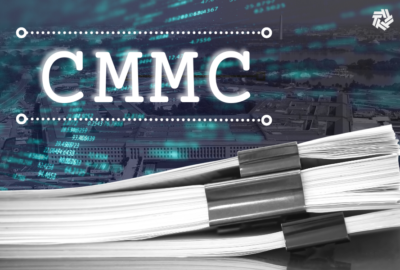Contracting Commandment #4: Thou Shalt Stay Informed
Every contract or subcontract in which you are involved is just one part of a much bigger picture, says procurement expert Tim Sullivan. And the more you know a...
Commentary by Timothy Sullivan
Partner, Thompson Coburn, LLP
This column was originally published on the Public Contracting Institute’s website and was republished here with permission from the organization. This post is the fourth in a 10-part series, “10 Commandments for Government Contractors“, being published weekly on FederalNewsRadio.com.
Henry Ford once said, “Anyone who stops learning is old, whether he’s twenty or eighty.” Those words, spoken in the early 20th century, ring true today, and they certainly apply to people involved in government contracting, regardless of your position. Why? Because every contract or subcontract in which you are involved is just one part of a much bigger picture. The more you know about the big picture, the better you will be able to protect your organization. 
There are a number of periodicals that cover the world of government contracts on a daily basis, and you should be reading at least one of them regularly. If you have a limited budget, I recommend you start with Bloomberg BNA’s Federal Contracts Report. It is issued online Monday through Friday, and it contains a summary of breaking news from Congress, the Executive Branch and the courts, boards, and the Government Accountability Office. It frequently contains white papers on a single current topic. As with any other publication, it is one thing to subscribe to it; it is quite another thing to actually read it.
You have to discipline yourself to spend at least 30 minutes a week reading these periodicals; this investment of time will pay off in the long run because very few of the people you encounter will be doing the same thing. If you subscribe to too many of these publications, you will be setting yourself up for failure — pick one or two and stick with them.
For purposes of daily reading in addition to Bloomberg’s FCR, I recommend Law 360 Government Contracts or the Jerry Walz publication PubKLawList.
These subscriptions cost money, and it is tempting to opt for the freebies. In my experience, the quality of the free information is spotty and often unreliable. You are far better off using a reliable source with an established reputation. The money you will spend on a subscription will pale when compared to the costs of a protest or claim litigation that could have been avoided if you had been reading the right publications. I would much prefer learning about a disastrous protest argument by reading about it rather than finding it out on my own dime (and time).
In addition to the daily updates, there are a variety of publications that are published on a less-frequent basis and are valuable for obtaining a much broader view of a particular issue. The dean of these publications is “Briefing Papers,” a monthly publication that deals in depth with a single topic in each issue. The Briefing Papers series dates back to 1963 and has covered nearly every possible topic in the field — some more than once. In terms of one-stop shopping, it cannot be surpassed.
Tim Sullivan discusses commandment #4 with Federal Drive Host Tom Temin.
In 1987, professors Ralph Nash and John Cibinic of the George Washington University Law School began to publish the Nash & Cibinic Report, a monthly publication that is now published by Westlaw. Professor Cibinic passed away in 2005, but Professor Nash is joined by two regular contributors, Vernon Edwards and Karen Manos, both experts on government contract matters, as well as other experienced guest authors. It is the most authoritative and analytical publication in the field today and covers current issues, generally using recent court, board, and GAO decisions to spark a lengthy discussion of the issues, how they have developed over time, and where things are headed. Professors Nash and Cibinic were and are prolific writers, and any article or book written by either of them will be a valuable addition to your bookshelf.
While there are a host of other publications available, you cannot go wrong with the ones I have mentioned, but you are mistaken if you think these are the only things you have to read. In addition to reading these specialized publications, you have an obligation to stay abreast of current events. Yes, that means reading a decent newspaper every day and at least one of the daily business newspapers, such as The Wall Street Journal or The Financial Times. These publications will complete the “big picture” mentioned earlier. International, national, and local events can have an impact on projects your organization is working on or pursuing.
For example, the current Mideast conflict might have an impact on your company’s ability to complete a Corps of Engineers construction project in Israel, or the recent report of major computer hacking could seriously threaten several projects you are performing.
In recent years we have also seen government shutdowns and sequestration. Developments like these can have a significant impact on your cost structure, to name but one effect on your business, and you have to stay on top of them.
In many cases, despite your efforts to stay current on things, you will find your company or agency reacting to what has happened; but in others, you will have the ability to revise your strategies and approaches based on what you have read and what you believe it portends for the future — that is when your reading really pays off.
Finally, you can learn something valuable from almost anything you read, oftentimes from the most unlikely publications. For example, you might learn something about negotiation strategy and tactics from the way a star quarterback negotiates with his professional football team or the way a company resolves its labor disputes with a union. Share that lesson with your team. Or you might learn something about leadership from a good biography; for example, Robert Caro’s Pulitzer- winning series of books on LBJ does a wonderful job of describing the complex web of government and its relationships with the private sector, including Government contractors, as does David McCullough in his biography of Harry Truman. Arthur Miller’s 1947 play, “All My Sons,” later made into an award-winning movie, portrays the true story of a businessman in Ohio who colludes with Army inspectors to defraud the Government by shipping defective airplane engine parts, a decision that leads to tragedies on several levels.
These books and the play might be about people who have been gone more than 50 years, but they still provide valuable insight into the nature of our business and will teach you lessons you will never forget.
Yes, ramping up your reading takes time, and spare time is something few people have. In our case, reading the right materials has to be a priority, and there is no time like the present to start making it part of your schedule.
Tim Sullivan is the chair of Thompson Coburn’s Government Contracts Group. He can be reached at tsullivan@thompsoncoburn.com or (202) 585-6930.
Copyright © 2024 Federal News Network. All rights reserved. This website is not intended for users located within the European Economic Area.





